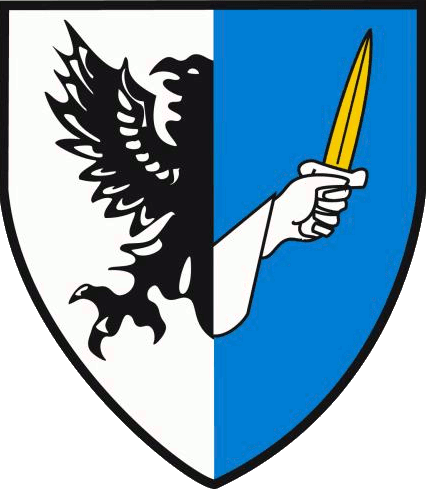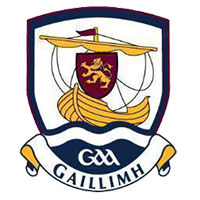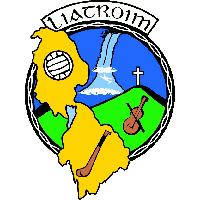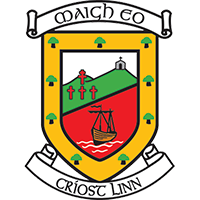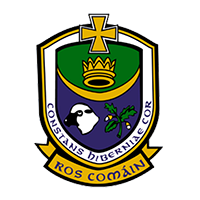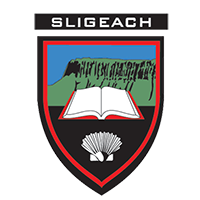New Connacht Coaching Initiative with 42 CDOs Starting Work

By Cian O’Connell
A new coaching initiative is being rolled out by Connacht GAA.
Seventy clubs have signed up for the programme with a total of 42 Club Development Officers (CDO) commencing work in recent weeks.
“Last May we visited each of the five Connacht counties and presented the initiative to all clubs,” Connacht GAA Provincial Games Manager Cathal Cregg explains. “Every club was able to apply for it.”
Ultimately increasing participation is key according to Cregg. “What we are trying to do is to increase participation in the clubs,” he says. “We are coaching in the national schools, then trying to get as many kids as possible into their local football, hurling, and camogie clubs.
“Within the clubs the CDO will assist with the delivery of the club nursery programmes, Go Games, camps, Super Games centres and athletic development programmes. The idea behind the initiative is that the CDOs will assist the club coaching officers in terms of getting these programmes started or continue running them depending on where the club is at.
“The coaching officer will still remain in charge of all the coaching, but with the workload on volunteers increasing all the time, the CDO is there to help the volunteer coaching officers and club’s coaches with improving coaching standards and implementing the coaching and games structure as best as possible in their local area.”
Some clubs will share CDOs, depending on various factors. “We have a number of different criteria to determine the hours a club gets each week such as the number of codes a club is participating in, the number of kids active in a club, how many national schools and number of kids in the catchment area, whether the clubs wanted to do an athletic development programme, the number and type of camps,” Cregg states. “All of those things were factored in terms of the number of hours a club were allocated.
“Clubs in the larger urban areas would have got an allocation of 39 hours while some clubs were paired up getting them 19.5 hours each and then smaller rural clubs were put in threes, getting 13 hours each.
“We have 70 clubs in total taking part with 42 positions covering those clubs. Unfortunately, at the moment we have five clubs who are not covered as we just couldn’t get enough people to cover them, but 70 is a big number for the first year and much larger than we would have expected to be taking on in year one but that shows the interest out there from clubs.”
With the sports industry in Ireland increasing, this venture provides a significant opportunity for students. “We feel it is a good offering for the third level students, we pay them, provide them with a good level of training and they get the practical experience” Cregg says.
“For the majority of them it is a full-time placement of 39 hrs per week and will provide them with a great chance to experience life as a sports development coach before they go back to finish their studies. It is good for them to get six months of full-time work on their CV for when they are going out to try to get full time work in 12 or 18 months.
“There is a huge volume of sports performance and sports coaching courses across the country. I think at last count it was 18 or 19 courses in total, so we have obviously CDOs from the Connacht region, but we have some from Cork, Kerry, Clare, Westmeath, Meath and so on. We have taken them from all over the country.”
Clubs, County Boards, and Connacht GAA contribute to the costs involved. “The clubs contribute 70% and the counties contribute 20%. The province contributes 10%, but does all the recruitment, employment, training, and management of the positions,” Cregg reveals.
What is the thought process about the scheme operating on a placement basis? “We have been trying to develop a sustainable model for clubs and volunteers for the last four to five year, but Covid stopped us really moving on anything,” Cregg replies.
“There has been a push to replicate the Dublin model in terms of having one full-time person 52 weeks of the year in clubs, but it’s very hard to compare the population of Dublin clubs to the vast majority of clubs in the west of Ireland.
“We also feel, through discussions with the various coaching and games committees and staff working on the ground in clubs across the province, that in the west of Ireland, there is maybe six to eight months work there when clubs are busy during the playing seasons, but that again will depend on the size of the clubs.
“One of the big reasons we feel there isn’t work in the months of October to February is that volunteers need down time after a busy playing season. If you have a person employed in the clubs during these quieter periods of the year, they would be putting unnecessary workload on volunteers.”
Cregg remains optimistic that a sustainable model is being developed in the west. “If we continue to overload our volunteers all year round, we cannot expect them to stay in the association for a long period of time,” he adds.
“We feel it is important that volunteers have a period of down time so they can recharge their batteries, rest up, and then go again for the following year. We want to put in a sustainable model – a model that clubs can afford year on year and that coaches in clubs want to coach year on year, where they aren’t burnt out.
“From October until maybe February time we feel there isn’t enough work there even if they are going into schools full-time, you would only get 20 hours in a week- that is the absolute maximum and that’s providing the weather is good which isn’t always the case in the west of Ireland. Facilities is another big challenge for coaching during these winter months.”
